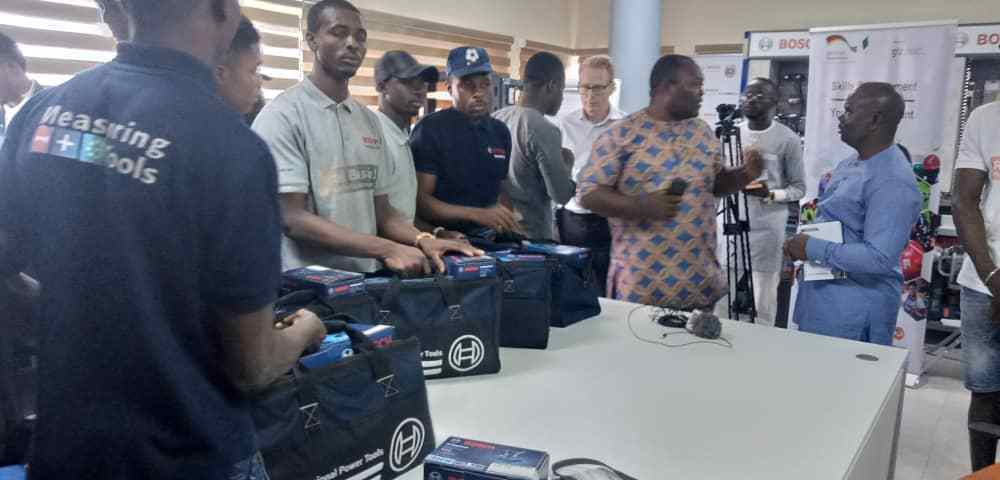
Twenty artisans, including returnee migrants from Europe, have been equipped with carpentry skills as part of the Skills Development for Youth Employment in Nigeria (SKYE) programme.
At an event to mark the completion of the training in Lagos, Friday, woodworking tool kits were handed over to the trainees.
The Gesellschaft für Internationale Zusammenarbeit (GIZ) training, done in collaboration with Robert Bosch Nigeria, a German organisation, is a pilot scheme of technical and vocational skills acquisition in Nigeria.
The skill acquisition programme, which spanned four weeks, was tagged ‘Empowerment of Carpenters and Reintegration of migrants in Nigeria’
The training was funded by the German Federal Ministry for Economic Cooperation and Development (BMZ), according to Caroline Chukwura, a representative of GIZ and SKYE.
Julius Obasise, a participant at the training, said the training was impactful as he learnt how to use several carpentry tools.
“We learned how to make good furniture, how to make it neat and faster.
“Before I didn’t know how to use a centimetre, but now I can use it well,” he added.
Mr Obasise said although he was into furniture making before the training, he has been exposed to a higher level of skills.
Ejiro Daniels, a returnee from Brazil, said the training was interesting and life-changing.
“It was unique in that it was practical hands-on and there was a lot of acquisition and problem-solving.”
He said they were taught to focus on doing a perfect job and design instead of “rushing through work.”
Mr Daniels, a technician who returned over two years ago, said he hopes to start his workshop and utilise the skills he had acquired at the training.
“There is a lot you can do for yourself back home here, the risk involved in travelling out is not worth it,” he said.
The organisers of the training said it was aimed at empowering the participants with professional carpentry experience to enable them to gain self-employment and create a better life in their home country.
Matthias Cenric, the facilitator at the training, described it as an interesting and challenging experience for him.
“It is the first time I will be training people using the English language.”
According to him, his little fluency in English made training the participants a little bit of a challenge and “I had to use my hands most often.”
For Mr Cenric, the interesting part was that the trainees were highly cooperative and made the training session very encouraging. He said he hopes to facilitate more training.
No comments:
Post a Comment